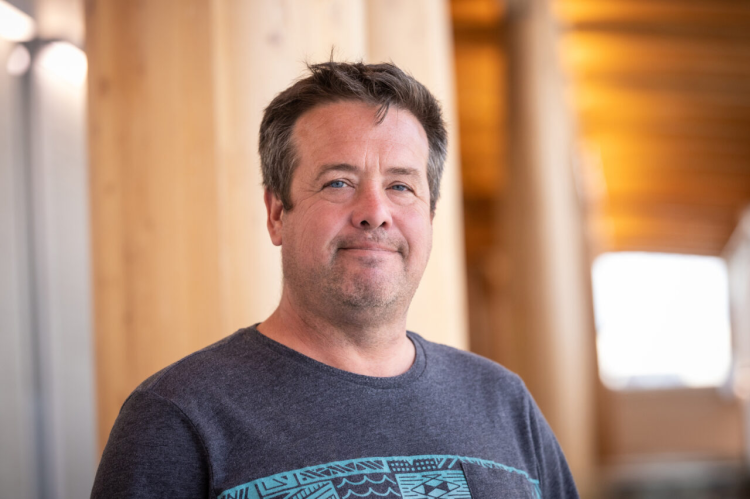Harvest has held a special place in the heart of Mike Ellefson for the past 22 years.

While seeding season brings with it a sense of anticipation, he says harvest time reigns supreme for people working at the Lethbridge Polytechnic Research Demonstration Farm.
"You're bringing the crop in, and we always fight over who gets to combine, because that's the most enjoyable part," says Ellefson. "We're the same as any farm in that we want to do well with the crops and bring in the money to cover all the costs we have. It's exciting, but it's also nerve-wracking because it's go time.' "
This past harvest holds special memories for him, as it was the first since his promotion in April from technician to farm manager. Jim Parker, just recently retired, began as farm manager in 2002. His first hire a month later was Ellefson, and for the next two decades-plus they learned the inner workings of the farm together. His new role has only strengthened Ellefson's sense of ownership.
"Jim and I kind of built this place together; there was nothing here when we started. Everything you see today, we had a role in, so you want to take care of the place and make sure it succeeds," he says.
Ellefson wasn't born into agriculture, although the Picture Butte native did enjoy helping on his uncle's farm as a teen. Following in the footsteps of his parents, Ellefson had designs on a career in education and was attending university towards that goal. He took a job at the research farm as a summer student, and quickly learned he enjoyed working outside, running equipment and growing things.
That summer job evolved into a permanent position, and while Ellefson never returned to the classroom, his education didn't end there. He was grateful that Parker provided him with the opportunity to be involved in all aspects of the farm operation.
"I learned a lot from him and I probably got one of the best ag educations around, because of all the top-notch scientists I worked with through Alberta Agriculture and then the college, and now the polytechnic," says Ellefson, who's also benefited from working with the latest technology used in research work at the farm including grain dryers, subsurface drip and variable rate irrigation systems.
The provincial government transferred management of the 385-acre farm east of Lethbridge - then called the Alberta Irrigation Technology Centre - to Lethbridge College in 2020.
"When the college came on, it was pretty exciting.," he says. "We'd always wanted to do more with the place, and they were keen and eager and had lots of ambition and vision."
Ellefson was thankful he and Parker were able to continue working with the many community partners they had cultivated over the years, including local producers and processors. He has also enjoyed the ever-changing nature of research work at the farm, and credits the resulting challenges with keeping his "brain young."
Moving under the umbrella of Lethbridge Polytechnic resulted in a growing number of student researchers working on the farm. The fresh perspectives they provide and their willingness to learn, says Ellefson, are infectious. Many of those students have no previous farm experience. He says one thing they share is a newfound confidence.
They discover they can operate heavy equipment and scientific instruments and are taught how plot plans are made and why. They also discover how much technology is involved in all aspects of farming, how to use it and how to help develop and test new technology, says Ellefson.
"They get to see how all the sciences, trades, and economics come together," he says. "The rewarding parts come with working hard, solving problems, working outdoors and in nature, building and repairing, all with the end goal to feed the world."
Lethbridge Polytechnic offers more than 65 certificate, diploma, degree and apprenticeship programs that are industry-responsive and encourage learning by doing. Students interested in working in agriculture can choose a diploma specializing in ag business, plant or animal sciences. Agronomy majors can continue their studies in Lethbridge Polytechnic's Bachelor of Agriculture Science degree program.













